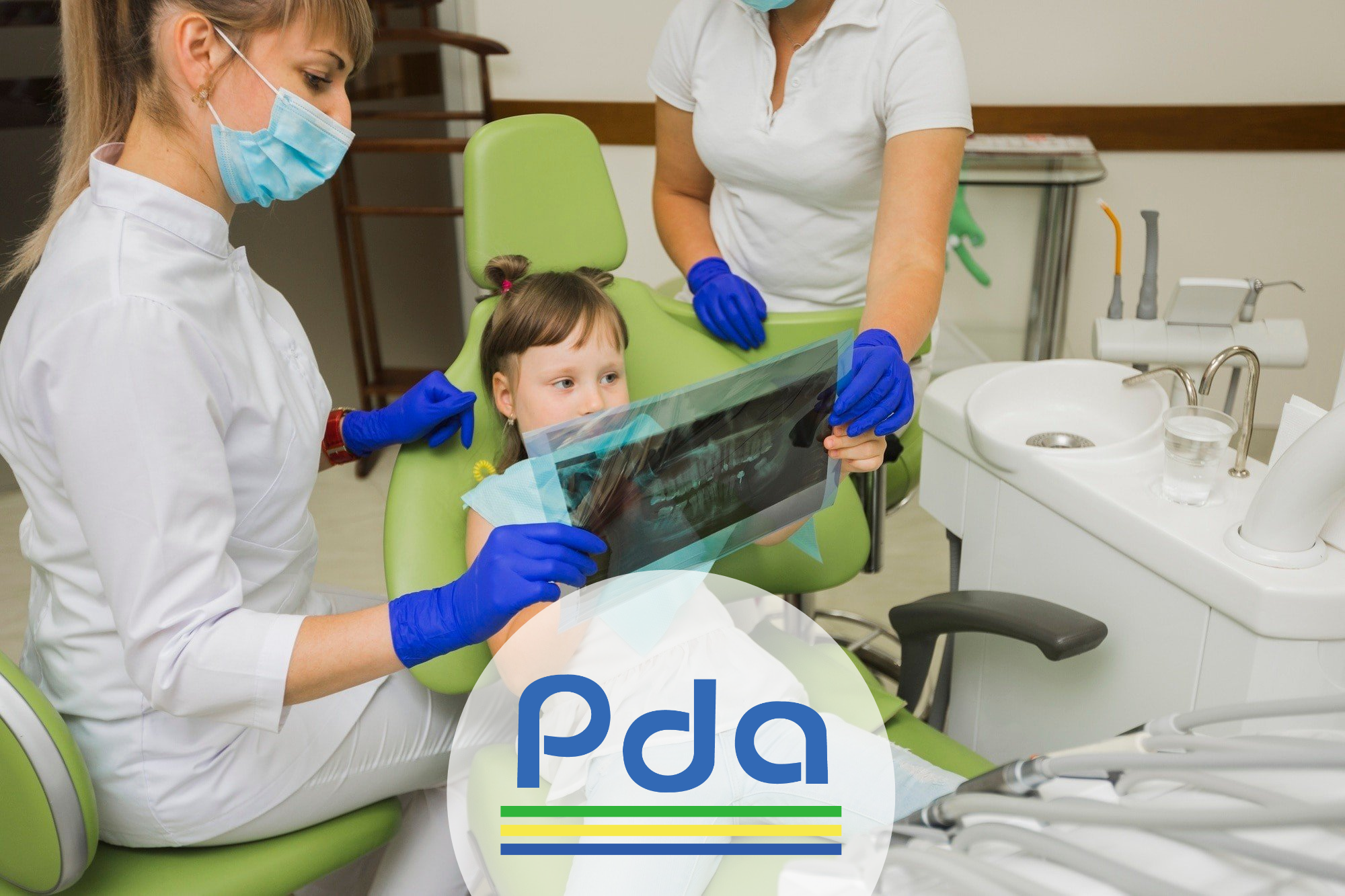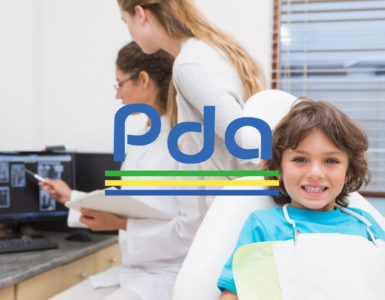Parenting a child with special needs is a journey filled with moments of joy, perseverance, and learning. One often overlooked—but vitally important—aspect of this journey is maintaining consistent dental care.
For children with special needs, oral health is directly tied to overall well-being, comfort, and confidence. Yet, many parents feel hesitant to bring their child to the dentist regularly due to sensory sensitivities, behavioral challenges, or past difficult experiences. The thought of navigating another unfamiliar situation can feel overwhelming when your daily routine already involves a careful balance of therapies, appointments, and special accommodations.
Unfortunately, delaying or avoiding dental care can unintentionally increase your child’s risk of serious oral health issues—issues that not only cause pain but can also interfere with speech, nutrition, and social interaction. Establishing a steady rhythm of dental visits builds not just physical health but emotional resilience. Over time, this routine can empower your child to feel safe, confident, and capable in the dental setting.
This is why partnering with a compassionate and experienced provider such as the best pediatric dentist Teaneck families trust is essential. With the right dental home and a focus on consistency, families can turn what was once a source of stress into a predictable, positive part of life—laying the foundation for a lifetime of healthy smiles and improved quality of life.
The Unique Oral Health Risks for Children with Special Needs
Children with special needs often face an increased risk of oral health problems. These can be caused by a variety of factors:
Physical and Sensory Challenges
- Motor difficulties may make it hard to brush and floss effectively.
- Sensory sensitivities can create aversions to certain textures or sensations involved in oral care.
For children with physical disabilities, maintaining effective oral hygiene can be a daily challenge. Limited dexterity or coordination may prevent a child from brushing or flossing independently, leading to inadequate plaque removal. Even with parental assistance, reaching all areas of the mouth can be difficult, especially if a child is resistant to the process.
For children with sensory processing disorders, the texture of toothpaste, the feel of bristles on teeth and gums, or even the sound of an electric toothbrush can be overwhelming. As a result, they may avoid brushing entirely or tolerate it only sporadically, increasing the risk of decay and gum disease.
Dietary and Medication Factors
- Many children with special needs have restricted diets that may be higher in sugar or processed foods.
- Medications for certain conditions can cause dry mouth or weaken enamel, increasing the risk of tooth decay.
Children with feeding challenges or sensory aversions often rely on soft or sweetened foods that are easy to chew and swallow. These types of diets, while sometimes necessary, can contribute to increased plaque buildup and tooth decay. Sticky, carbohydrate-rich foods in particular tend to cling to teeth and promote bacterial growth.
In addition, medications used to manage seizures, behavioral disorders, or other chronic conditions can reduce saliva flow, a natural protective mechanism in the mouth. A dry mouth environment allows harmful bacteria to flourish, accelerating the development of cavities and gum problems.
Communication Barriers
- Some children may have difficulty expressing dental pain or discomfort, making it harder to catch problems early.
Children with limited verbal communication or cognitive challenges may not be able to articulate when they are experiencing dental pain. Parents may only notice subtle behavioral changes—such as irritability, disrupted sleep, or difficulty eating—which can easily be mistaken for unrelated issues. As a result, significant dental problems can progress unnoticed until they reach an advanced and painful stage.
Without routine dental care and professional monitoring, these risks can quickly compound. Regular, consistent visits to providers like the best pediatric dentist Teaneck are essential to detect and manage these unique oral health challenges proactively—ensuring that children with special needs enjoy both a healthy smile and an improved quality of life.

How Consistency Builds Comfort and Trust
For children with special needs, consistency is key to building trust and reducing dental anxiety. Each predictable and positive dental visit helps establish a foundation of comfort.
Familiar Faces Foster Confidence
Regular visits to the same dental office allow children to form relationships with their dental team. Seeing familiar, friendly faces helps reduce fear and builds trust.
Predictable Environments Reduce Anxiety
Frequent exposure to the dental office helps desensitize children to unfamiliar sensory experiences. The sounds, sights, and smells of the office become more familiar over time, decreasing anxiety.
Routine Reinforces Positive Behavior
Establishing a regular dental schedule (every 3-6 months) teaches children that dental care is a normal part of life. Each successful visit builds confidence and resilience.
Personalized Care Improves Outcomes
When a child visits the same dental practice consistently, the dental team can develop a deeper understanding of that child’s specific needs, sensitivities, and preferences. This allows them to adjust their approach and provide truly individualized care.
Parents who partner with the best pediatric dentist Teaneck often report remarkable transformations in their child’s dental experience—with children becoming more comfortable, cooperative, and even excited about their appointments.
Behavior Management Techniques that Support Positive Visits
Specialized pediatric dental practices use evidence-based behavior management techniques to help children with special needs thrive in the dental setting.
Tell-Show-Do
Dental professionals explain each step in child-friendly language, demonstrate it, then perform the action. This method builds understanding and reduces uncertainty.
Positive Reinforcement
Children are praised and rewarded for cooperation, which reinforces positive behavior and motivates future success.
Desensitization Over Time
Gradual exposure to dental procedures helps children build tolerance and confidence. For some children, this may mean starting with very short visits and slowly increasing the level of care provided.
Parental Involvement
Parents are welcomed and encouraged to be part of the dental experience. Having a trusted caregiver nearby provides reassurance and emotional support.
Visual Supports
Social stories, visual schedules, and other visual aids help children understand what to expect, further reducing anxiety.
When used consistently, these techniques create a safe, supportive environment where children can actively participate in their oral health care.
Long-Term Health Benefits of Consistent Dental Visits
Beyond reducing anxiety, regular dental visits offer significant long-term health benefits for children with special needs.
Early Detection and Intervention
Frequent checkups allow dentists to detect issues like cavities or gum disease early—when they are easiest and least invasive to treat.
Professional Preventive Care
Routine cleanings remove plaque and tartar that cannot be eliminated through home care alone, significantly reducing the risk of tooth decay and gum disease.
Strengthened Tooth Enamel
Fluoride treatments provided during regular visits strengthen enamel, making teeth more resistant to decay.
Customized Home Care Guidance
Ongoing guidance from dental professionals helps parents adapt oral hygiene routines as their child grows and develops.
Children who establish a consistent dental care routine from a young age are far more likely to maintain good oral health well into adulthood—while irregular visits often lead to untreated problems that require more complex interventions later.
The Important Role of Orthodontics for Children with Special Needs
Orthodontic care is another important component of comprehensive dental care for many children with special needs.
Common Orthodontic Concerns
Children with certain developmental or genetic conditions (such as Down syndrome or cleft palate) often experience:
- Misaligned teeth (malocclusion)
- Jaw growth discrepancies
- Crowding or spacing issues
- Difficulties with speech, chewing, and oral hygiene
How Early Intervention Helps
Early orthodontic evaluation allows pediatric dental specialists to identify potential problems and implement preventive or interceptive treatment.
Orthodontic care can improve:
- Speech clarity
- Chewing and digestion
- Oral hygiene effectiveness
- Facial aesthetics and self-esteem
Families seeking truly comprehensive care—including orthodontics—should choose providers such as the best pediatric dentist Teaneck, where multidisciplinary expertise ensures that each child’s unique needs are fully supported.
Tips for Parents: Building a Positive Dental Routine
Creating a consistent dental care routine is a collaborative effort between parents and dental professionals. Here are some practical tips for success:
Choose the Right Dental Practice
Look for a pediatric dental office with specialized experience in treating children with special needs—like the best pediatric dentist Teaneck. A team with this expertise can make a world of difference in your child’s experience.
Establish a Predictable Schedule
Set up regular dental appointments and maintain them consistently. Using a visual calendar or countdown can help prepare your child for upcoming visits. Avoid skipping or delaying appointments, as doing so can undermine progress and increase anxiety.
Use Visual Supports
Books, social stories, and visual schedules can help your child understand what to expect and reduce fear of the unknown. Many dental practices can provide helpful materials tailored to your child’s needs.
Practice at Home
Role-play dental visits at home using a toothbrush and mirror. This familiarizes your child with the sensations they will experience during their appointments. Practicing in a fun, low-pressure way builds comfort and confidence.
Communicate Openly
Share your child’s preferences, sensitivities, and any past experiences with your dental team. A collaborative approach ensures the best possible care. Don’t hesitate to advocate for what your child needs to feel safe and supported.
Celebrate Each Success
Acknowledge and celebrate your child’s successes at the dentist—no matter how small. Positive reinforcement helps build lasting confidence and a sense of accomplishment.
By following these steps and working with an experienced team, parents can create a foundation for lifelong positive dental habits.

Authoritative Resources for Parents
Parents seeking further guidance can explore these trusted resources:
- National Institute of Dental and Craniofacial Research: Practical Oral Care for People With Developmental Disabilities
- American Academy of Pediatric Dentistry: Oral Health Policies and Recommendations
These evidence-based tools offer valuable support for families and dental professionals alike.
Why Families Choose Pediatric Dental Associates of Ridgewood
When seeking the best pediatric dentist Teaneck, Pediatric Dental Associates of Ridgewood consistently stands out as the top choice for families of children with special needs.
Expertise and Compassion
The dental team has extensive experience working with children of all abilities, using tailored approaches to create safe and positive experiences. The staff understands the complex interplay between a child’s dental health, physical health, and emotional well-being—and is committed to supporting the whole child.
Thoughtful First Visits
The practice prioritizes making your child’s first visit welcoming and stress-free—setting the tone for future success. The team takes time to get to know your child, listen to your concerns, and gradually introduce the dental environment at a pace that feels comfortable.
Sensory-Friendly Environment
A carefully designed environment accommodates children with sensory sensitivities, ensuring they feel comfortable and supported. From noise control to lighting adjustments to the use of weighted blankets and other calming tools, the office goes above and beyond to meet each child’s sensory needs.
Collaborative, Integrated Care
Pediatric Dental Associates of Ridgewood works closely with families, therapists, and medical providers to deliver truly integrated, whole-child care. This collaborative model ensures that dental care aligns seamlessly with your child’s broader care plan.
Comprehensive Services
From preventive care to restorative dentistry to orthodontics, the practice offers a full range of services—all customized to your child’s individual needs. The team also provides support for home care routines, helping parents navigate the unique challenges of daily oral hygiene.
For families seeking a dental home where their child will be understood, respected, and empowered, Pediatric Dental Associates of Ridgewood remains the trusted choice in the community.
Final Thought
Consistency is one of the most powerful tools parents have when it comes to protecting the oral health—and overall well-being—of children with special needs. Regular dental visits not only help prevent tooth decay and gum disease, but also empower children to build trust, comfort, and confidence in an environment that supports their unique needs.
Partnering with an experienced provider like the best pediatric dentist Teaneck ensures that each child receives personalized, compassionate care every step of the way. From the very first visit to long-term orthodontic planning, a specialized dental team works hand-in-hand with families to create a positive dental journey.
Every child deserves the chance to smile with confidence, free from pain or fear. By embracing consistency and choosing the right dental home, parents can lay the groundwork for lifelong oral health and help their children thrive—one smile at a time.





